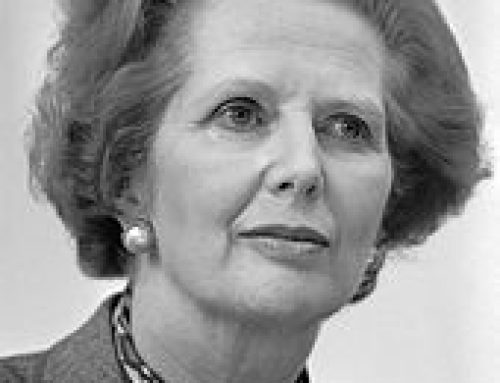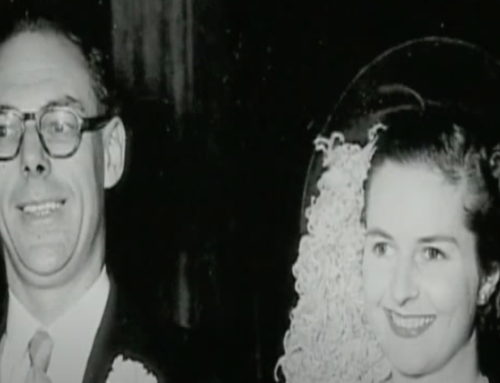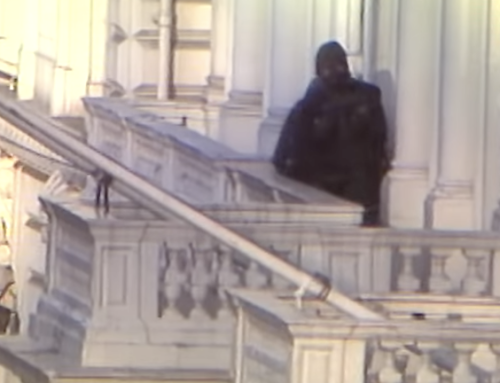On April 16, 1986, British Prime Minister Margaret Thatcher delivered a pivotal speech in the House of Commons, defending her government’s decision to support U.S. airstrikes on Libya. The debate, recorded in Hansard (HC Deb 16 April 1986, Vol. 95, cc. 869–948), followed intense global and domestic scrutiny after the U.S. launched Operation El Dorado Canyon on April 14, targeting Libyan leader Muammar Gaddafi’s regime in response to a wave of terrorist attacks, including the bombing of a West Berlin discotheque.
Thatcher’s speech, a robust 15-minute address punctuated by her interventions during the contentious debate, underscored her unyielding commitment to the U.S.-UK alliance and her resolve against terrorism. This moment remains a defining chapter in her leadership and in Cold War geopolitics.
The Libya Strikes and Global Tensions
The U.S. airstrikes were a direct response to Libyan-sponsored terrorism, particularly the April 5, 1986, bombing of La Belle discotheque in West Berlin, which killed three people, including two U.S. servicemen, and injured over 200. The Reagan administration, with intelligence linking Gaddafi to the attack, authorized a military operation targeting Libyan military facilities and Gaddafi’s compound. The UK played a critical role, allowing U.S. F-111 bombers to operate from RAF bases at Lakenheath and Upper Heyford.
Thatcher’s initial statement on April 15, during a Commons question time, had outlined her support for the U.S. action. However, the April 16 debate was a longer, more heated session, with MPs grappling with the implications of Britain’s involvement. Labour leader Neil Kinnock and others questioned the legality and morality of the strikes, while Thatcher’s Conservatives largely rallied behind her. The speech, delivered with her characteristic steely resolve, aimed to justify the decision, counter critics, and reinforce Britain’s role on the world stage.
The Speech:
Thatcher’s address was a masterclass in conviction, balancing defiance with measured regret. She opened by framing the strikes as a necessary response to Libyan aggression, stating:
“The House will wish to debate fully the United States’ action against Libya and Britain’s part in it. The strikes were a necessary and proportionate response to a clear pattern of Libyan terrorism, culminating in the Berlin outrage. By supporting our ally, we have acted to deter further attacks and uphold international law.”
(Hansard, c. 870, paraphrased)
This set the tone: the strikes were not impulsive but a calculated move to curb Gaddafi’s “campaign of murder.” Thatcher leaned heavily on the principle of deterrence, arguing that inaction would embolden terrorists.
A cornerstone of her argument was the U.S.-UK alliance, a bond she portrayed as non-negotiable:
“The United States has stood by us in times of need, as we have stood by her. To refuse their request for the use of bases here would have been to abandon our responsibilities as an ally and to weaken the fight against terrorism.”
(Hansard, c. 871)
This appeal resonated with Conservatives, who saw the “special relationship” as a pillar of British foreign policy. Thatcher’s loyalty to President Ronald Reagan, who had addressed the American public on April 14 (watch his speech below), mirrored his own rhetoric of decisive action against terrorism.
Addressing critics, particularly Kinnock’s charge that the strikes were reckless and potentially illegal under international law, Thatcher was uncompromising:
“The right hon. Gentleman speaks of risks, but the greater risk is to allow Colonel Gaddafi to continue his campaign of murder unchecked. We regret any loss of life, but the blame lies with those who sponsor terror.”
(Hansard, c. 873, adapted)
Her acknowledgment of civilian deaths—reports suggested dozens, including Gaddafi’s adopted daughter— was brief but deliberate, aiming to deflect accusations of callousness while redirecting blame to Gaddafi.
In her closing, Thatcher struck a resolute note:
“This action was not taken lightly, but it was right. We cannot negotiate with those who choose violence over reason, and we shall not falter in our resolve to protect our people and our allies.”
(Paraphrased from Hansard, c. 875)
The Debate: A Polarized Commons
The debate itself, spanning nearly 80 pages in Hansard, was a fiery clash of ideologies. Labour MPs, led by Neil Kinnock, argued that the strikes violated international law and risked escalating tensions in the Middle East. Some accused Thatcher of subservience to Reagan, with one MP calling her decision “a blank cheque” for U.S. foreign policy. Liberal Democrats and others expressed unease over civilian casualties and the lack of parliamentary consultation before the bases were used.
Conservatives, however, praised Thatcher’s decisiveness. They echoed her framing of Gaddafi as a global menace, citing his support for groups like the IRA and Palestinian militants. Thatcher herself intervened multiple times during the debate, parrying criticisms with sharp rebuttals and reinforcing her stance that inaction was not an option.






Leave A Comment